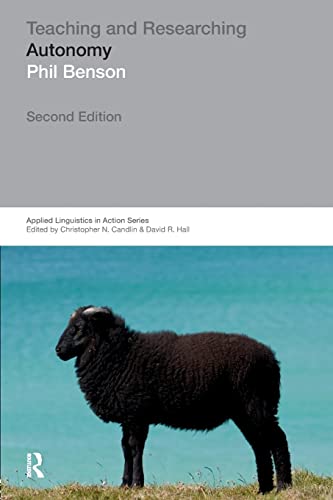

Most ebook files are in PDF format, so you can easily read them using various software such as Foxit Reader or directly on the Google Chrome browser.
Some ebook files are released by publishers in other formats such as .awz, .mobi, .epub, .fb2, etc. You may need to install specific software to read these formats on mobile/PC, such as Calibre.
Please read the tutorial at this link: https://ebookbell.com/faq
We offer FREE conversion to the popular formats you request; however, this may take some time. Therefore, right after payment, please email us, and we will try to provide the service as quickly as possible.
For some exceptional file formats or broken links (if any), please refrain from opening any disputes. Instead, email us first, and we will try to assist within a maximum of 6 hours.
EbookBell Team

4.4
52 reviewsAutonomy has become a keyword of language policy in education systems around the world, as the importance of independent learning and new technologies has grown.
Now in a fully revised and updated second edition,Teaching and Researching Autonomyprovides an accessible and comprehensive critical account of the theory and practice of autonomy. Examining the history of the concept, it addresses important questions of how we can identify autonomy in language learning behaviours and how we can evaluate the wide variety of educational practices that have been designed to foster autonomy in learning. Topics new to this edition include: - Autonomy and new technologies - Teacher autonomy - The sociocultural implications of autonomy With over three hundred new references and five new case studies of research on autonomy providing practical advice on research methods and topics in the field,Teaching and Researching Autonomywill be an essential introduction for teachers and students to a subject at the cutting edge of language teaching and research.